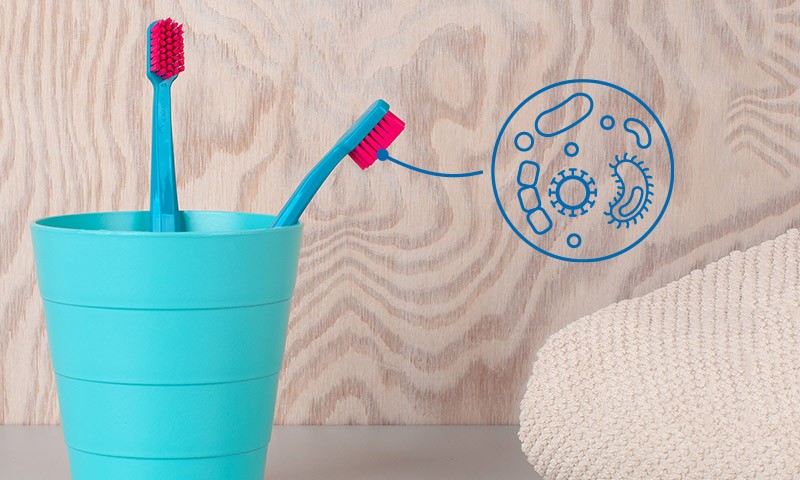Introduction
What causes bad breath?
Why does my breath smell bad? And what causes bad breath even after brushing?
Bad breath – also known as halitosis – is a common problem that can make you feel self-conscious about speaking to people…
… or even being too close to people.
Millions of bacteria build up in our mouths and break down the tiny bits of food that get stuck between the teeth or in the pockets of the gums. This produces unpleasant-smelling volatile sulphur compounds such as hydrogen sulphide –
commonly described as smelling like rotten eggs.
How to cure bad breath
In some cases the cause of bad breath is a medical condition affecting a different part of the body, such as the kidneys or the stomach. But in about 90% of cases, the problem comes from the mouth or the throat.
About a quarter of people notice they suffer from bad breath from time to time… while 6% complain they have it permanently. Older people are likely to suffer from bad breath. And men are more likely than women to have a problem.
Dental professionals say bad breath is usually caused by inadequate oral hygiene. So now the good news:
In most cases, if you start taking the following simple steps to improve your daily health routine…
…. you can quickly start to enjoy the confidence of fresh breath!
Step one
Brush the best way
Use a gentle toothbrush with the best technique to help prevent the build-up of plaque…
Controlling the build-up of plaque – the sticky, thin film of bacteria that constantly forms on our teeth – is the key to preventing bad breath.
So brushing with a gentle toothbrush with densely-packed filaments…
… using the right technique (no hard scrubbing)…
… and a toothpaste that boosts the protective power of your saliva…
… is the best way to start to deal with bad breath.
Curaprox CS 5460 - The go-to toothbrush to keep your breath fresh
Step two
Clean the interdental spaces
Use interdental brushes to help prevent gum inflammation and bad breath…
Cleaning the spaces between your teeth with interdental brushes is essential if you want to avoid bad breath.
Interdental spaces are the perfect breeding ground for a smelly accumulation of bacteria so…
Use Curaprox CPS prime interdental brushes to clean between your teeth – before or after brushing every evening. Once in and out. Done.
Easily destroy the build-up of bacteria every day… and start to enjoy noticeably fresher breath!
Please ask your dentist to help you find the right sized interdental brushes for you. Too small and the brush won’t clean optimally. Too big and they won’t fit – and they could hurt your gums.
Now read our ultimate guide to using CPS interdental brushes.
IMPORTANT: Some cases of severe bad breath are due to periodontitis – an advanced gum disease that causes pockets to develop between the gums and the teeth. The pockets fill up with colonies of bacteria, which can lead to strong halitosis. If you think you may be suffering from periodontitis, please book an appointment with your dentist as soon as possible.
We recommend:
Step three
Use a tongue scraper
Say goodbye to bad breath by using a tongue scraper as part of your daily oral health routine…
Gently scrape your tongue at least once a week to easily get rid of bacteria and other deposits responsible for bad breath… with Curaprox tongue scrapers. You can see – and smell – the difference from the first time you try it. And you’re always only two seconds away from fresh breath confidence.
How to clean your tongue and freshen your breath
Simply scrape from the back of the tongue to the tip of the tongue – almost without any pressure.
Watch our video guide
 Swiss premium oral care / Free delivery for all orders above $35!
Swiss premium oral care / Free delivery for all orders above $35!















